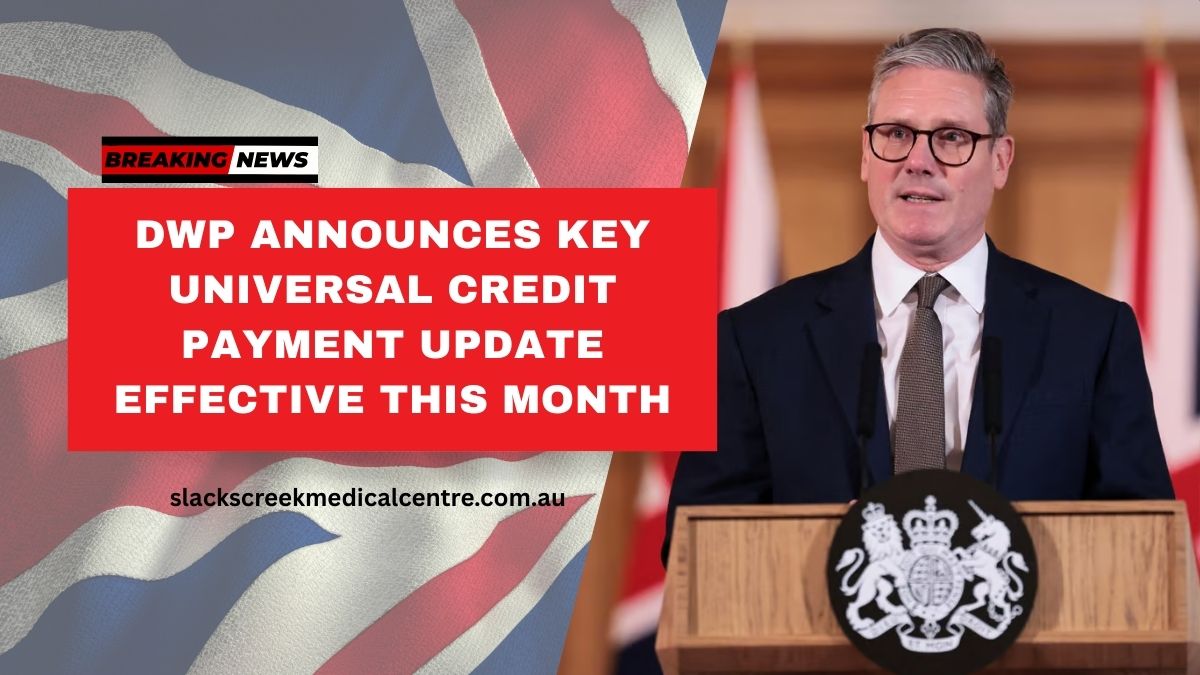The Department for Work and Pensions (DWP) has announced a significant change to the Fair Repayment Rate for recipients of Universal Credit.
This adjustment, introduced by Chancellor Rachel Reeves during the Autumn Budget in October, will take effect on April 30 and is set to become a permanent policy.
What is the Fair Repayment Rate?
The Fair Repayment Rate represents the percentage of a claimant’s standard allowance that can be deducted from their Universal Credit award.
Previously, the overall cap for these deductions was set at 25%, but with the new changes, it will be reduced to 15%. This move is designed to ease financial pressure on households relying on Universal Credit.
Impact on Households: Increased Income from Universal Credit
According to the DWP, this new measure will result in a boost to household income. Universal Credit claimants will see an average increase of £35 per month, or £420 over the course of the 2025/26 financial year. This is expected to provide much-needed financial relief, particularly for those facing deductions.
Read More: DWP and HMRC Benefit Payment Changes Coming Next Week – What You Need to Know
Child Maintenance Deductions and Priority
The UK Government has emphasized the responsibility of parents to support their children, and it recognizes that child maintenance payments play a crucial role in lifting children out of poverty.
To ensure that child maintenance payments are not negatively affected by the changes, the government has committed to moving the child maintenance deduction higher in the priority order.
This means that, even under the new Fair Repayment Rate, the amount deducted for child maintenance will remain unaffected.
Protection for Child Maintenance Deductions
To further safeguard the ability of child maintenance payments to continue, the DWP has implemented additional protections.
If necessary, the cap on overall deductions (set at 15%) can be exceeded to ensure that child maintenance payments are still made, especially in cases where other payment methods have failed or are unavailable.
Temporary Adjustment and Data Collection
This adjustment will remain in place temporarily for a year, during which the DWP will collect data on how the changes affect Universal Credit claimants, particularly regarding other debts and the impact of child maintenance deductions.
The gathered evidence will help determine whether the temporary change should be made permanent or if further modifications are needed.
Recent Uplift in Universal Credit Payments
Along with the introduction of the Fair Repayment Rate changes, Universal Credit and other DWP-related benefits received a 1.7% increase on April 7.
However, as most benefits are paid in arrears, claimants will not see the full effect of this increase until the next assessment period has been completed.
Key Points at a Glance
| Change | Details |
|---|---|
| Deductions Cap | Reduced from 25% to 15% of a claimant’s standard allowance. |
| Impact on Household Income | Average increase of £35 per month, or £420 annually. |
| Child Maintenance Priority | Child maintenance deductions are prioritized and protected from changes. |
| Temporary Change Duration | Adjustments will be monitored for a year to assess impact. |
| Recent Universal Credit Increase | 1.7% increase in benefits from April 7. |
The DWP’s changes to the Fair Repayment Rate will significantly reduce the burden on Universal Credit claimants, providing them with an increased income.
The commitment to protecting child maintenance payments ensures that these vital support systems remain intact, even as the overall deductions cap is lowered.
This move is expected to provide much-needed financial relief to households, with the potential for further improvements based on data collected over the coming year.
FAQs
What is the new deduction cap for Universal Credit?
The new deduction cap for Universal Credit is now 15%, reduced from the previous 25%.
How much will households benefit from the new changes?
Households are expected to see an average increase of £35 per month, or £420 annually.
Will child maintenance payments be affected by these changes?
No, the government has prioritized child maintenance deductions, ensuring they will remain unaffected even if the overall deductions cap is exceeded.

